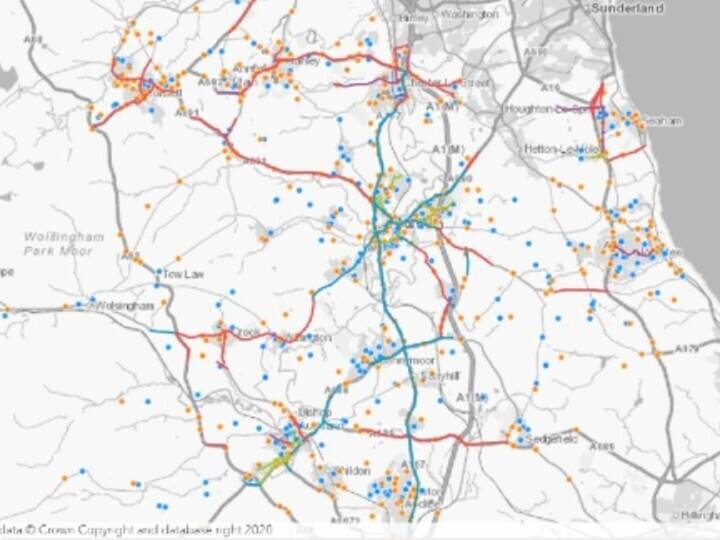Exemplar Award Winner- Winner Best Example of Street Naming and Numbering Policy Implementation Award 2012: Adur and Worthing Councils
In 2007, a decision was taken for Adur District and Worthing Borough Councils to work together, providing joint, shared services to both communities.
The project involved amalgamating services employed across the two councils and part of it focused on the investigation, consultation, adoption and resource savings from the creation of one Street Naming and Numbering (SNN) policy, which also included the adoption of one legal process and procedure across both councils.
Prior to the project, neither Adur nor Worthing Councils could offer a developer, business owner or property owner an official policy detailing all aspects of their SNN practice.
Worthing Borough Council had an informal policy that focused on procedural aspects and consultations with Elected Members regarding street names, but struggled with a number of legal challenges relating to the application of street naming and numbering and all its elements. Adur District Council was in an even worse position with no policy at all, apart from consultation regarding the delegation of authority for street naming.
To define their service and statutory duty in a transparent way, it became vital for the two councils to have a single policy in place, which would be publicly available for all staff, developers, businesses and members of the public to follow.
How the project was carried out
It was considered important to establish the historic SNN legislation adopted by both Adur and Worthing Councils, and to ensure that the same legislation was put in place for both councils. To achieve this, they reviewed all the SNN processes and procedures in place across both councils and used the feedback from consultations to implement a single working practice.
They aimed to create simple but thorough practices to cover all eventualities; for example, retrospective addressing of illegal developments where they created a ‘rapid response’ procedure to get the new addressing out to services whilst ensuring payment is promptly collected via their legal team.
Other council policies were analysed, as were service requirements and the legislation adopted by the councils. To encourage policy adoption across the business, the councils’ aims were publicised in the local media, public feedback was invited, and they liaised with all stakeholders to include other local authorities, council services such as Planning, other key services, Members, Council staff, Legal and Finance teams, and the public.
The benefits of adopting one policy across both councils were sold by both detailing the failures of existing processes and communicating the benefits of one policy implementation.
Outcomes
Implementation of a single policy has raised and increased awareness of the councils’ SNN statutory duty, processes and charging policy for a wide audience.
LLPG and SNN are now combined into a single unified process carried out by the Corporate Information Team, and SNN has been integrated to the LLPG via the SNN software package employed across both councils. All SNN references are loaded into the LLPGs along with new address information, and all correspondence and plans for each SNN case are kept electronically in one location.
Through collaboration with the planning department, details of SNN processes are now sent out to all applicants, which has resulted in developers proactively contacting the council during the early stages of a build to register for the SNN service.
Access to the public has also been improved as they are now able to register their SNN requests via an electronic form available on the Adur and Worthing joint web page.
Council policy now requires that other departments contact the LLPG team for an address prior to keying data into their system, and staff can access LLPG information via a web service, with queries sent via an automated email process. If a development or an address anomaly is identified, the LLPG team can now investigate and carry out SNN as appropriate.
Key benefits
• £8000 saved in staff resource as all administrative work is completed by the SNN Officer rather than a separate support service team
• the amalgamation of two staff teams into one and streamlining processes have led to a further staff resource saving of £22000
• a single policy and process has brought clarity and transparency to SNN as members of the public can now understand how addresses are applied or changed and how an address is created
• the Corporate Information Team are able to collate and maintain address change information in one area, making it easier and more efficient to establish an accurate knowledge base
• all SNN references are inserted in the gazetteer so other council service areas can view the SNN reference against any property record via the web service look-up
• monthly PAF and VOA address matching anomalies can be corrected via the SNN process
• a platform has been created to progress further LLPG/SNN partnership working



